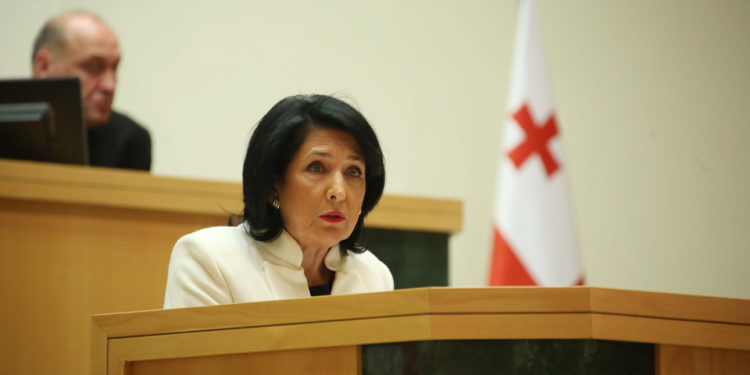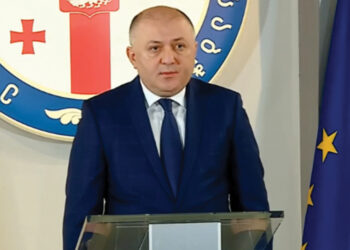The Georgian government is appealing to the Constitutional Court against President Salome Zurabishvili.
The statement of the Georgian Dream Political Council reads that in the process of implementing the foreign policy, the President has violated the Constitution, which needs to be confirmed by the Constitutional Court.
Among them, according to the ruling party, during the past year, there have been numerous cases when the president has refused to appoint an ambassador or a diplomatic representative nominated by the government, which is grossly contrary to the Constitution of Georgia.
“The current version of the Constitution of Georgia gives the Georgian government the exclusive authority to implement foreign policy. In accordance with the principles of the Parliamentary Republic, the President of Georgia may engage in the implementation of foreign policy only in exceptional cases, with the extraordinary consent of the Government of Georgia. It should be additionally noted that the President of Georgia is not subject to any state agency related to the implementation of foreign policy, which makes it impossible for them to be effectively involved in the implementation of these powers. As already mentioned, these peculiarities are derived from the principles of a parliamentary republic.
“The appointment of ambassadors and other diplomatic representatives is one of the most important tools for foreign policy implementation. The relevant act is issued with the co-signature of the President and the Prime Minister, and according to the Constitution, political responsibility for such an act lies solely with the government. This means that the material authority to appoint an ambassador is vested in the government by the constitution, while the president has only legal and ceremonial powers in this area. However, even if a reservation is not made, the power to appoint ambassadors to all parliamentary republics is defined in this way – the president formally appoints ambassadors, and the government is politically and practically responsible for their selection. Over the past year, there have been a number of cases in which the President has refused to appoint an ambassador or diplomatic representative nominated by the government, which is grossly contrary to the Constitution of Georgia. During the past months, a number of meetings were held between government officials and the President, where the President was repeatedly explained the content of the Constitution of Georgia, but, unfortunately, to no avail. In these circumstances, the Government of Georgia is forced to apply to the Constitutional Court in the near future within the framework of the dispute over the competencies of the Court and to request confirmation of the violation of the Constitution by the President of Georgia,” reads the statement.
Speaking in parliament on March 14, President Zurabishvili made a number of critical statements about both the ruling team and the opposition.
She criticized the Parliament and said that society today is “more adequate and conscious” than the MPs.
Zurabishvili claimed that she was refused official visits to European capitals by the local authorities.
“The government sins when it does not dare to express what our history and dignity dictate,” she said.
By Ana Dumbadze














